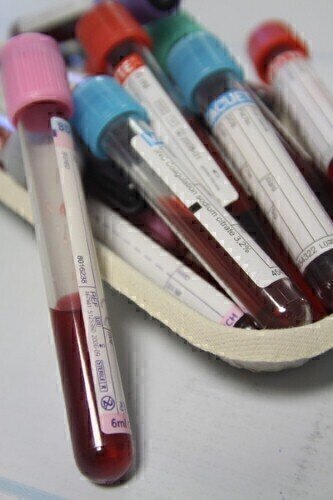News
Will current plans to protect against Covid-related infections be adequate ?
Oct 02 2021
“Without regular antibody testing in the community, we can’t identify those people who never developed antibodies at all after vaccination, or those people who have already lost their antibodies.” Quinton Fivelman
As the latest Office for National Statistics (ONS) figures reveal that Covid-related deaths are continuing to rise, Dr Quinton Fivelman PhD, Chief Scientific Officer at London Medical Laboratory, has argued that without the introduction of comprehensive antibody testing the Government may have to resort to an alternative plan than those already outlined for containing the spread of the virus this winter.
“There’s no significant decrease in the number of people being admitted to hospital with Covid-19 and deaths from the virus are now at their highest level since March. Even with the Government’s new Plan A in place and ‘last resort’ Plan B waiting in the wings, this may well not be enough,” Dr Fivelman said.
Without introducing comprehensive antibody testing, in conjunction with new monoclonal treatments, he added, the Government may swiftly have to produce its 'Plan C', even though it denies the existence of one.
“I would suggest that Plan C actually does exist in a locked Whitehall cupboard somewhere, perhaps behind a sign saying: “In case of escalating emergency break glass”. Such a plan is likely to involve a firebreak, perhaps with an extension to the October half term, mandatory mask wearing in public places, a return to social distancing and a limit on gatherings in homes and indoor public places,” Dr Fivelman continued.
Antibody testing needs to be increased
“The best way to avoid finding out if Plan C exists or not, is to increase antibody testing. Without regular antibody testing in the community, we can’t identify those people who never developed antibodies at all after vaccination, or those people who have already lost their antibodies.”
According to Dr Fivelman, the private medical company’s research had revealed that 1 in 100 fully vaccinated people fail to develop any antibodies at all after vaccination. “That means that, even if every UK adult is vaccinated, half a million adults will have no protection whatsoever, and not even realise. Identifying those people is crucial.
Of equal concern, its recent tests also found that a growing number of people who have been jabbed now have lower values (50 to 500AU/ml) of antibodies. The lower scores of those tested could be an indication that their antibody levels may have significantly declined over time and they may be more susceptible to the virus as time passes.
“We need to increase the number of IgG (immunoglobulin G) antibody tests being carried out and a shared database needs to be created so information from Government and private labs can be bought together. That’s because antibody testing can avert the imposition of a return to lockdowns, when used in conjunction with new immune-boosting drugs designed to protect patients who fail to respond to the Covid vaccine or rapidly lose immunity. These new supplementary drugs contain monoclonal antibodies and are already in use in America, Europe and Asia.
‘The UK’s drug regulator has already approved the first monoclonal antibody treatment – Ronapreve – for the treatment and prevention of acute Covid-19 in adults. The treatment binds to two different sites on the SARS-CoV-2 spike protein, neutralising the virus’s ability to infect cells,” he added.
The test can be purchased by those who don’t qualify for the Government’s new limited testing programme, Dr Fivelman said.
More information online
Digital Edition
Lab Asia Dec 2025
December 2025
Chromatography Articles- Cutting-edge sample preparation tools help laboratories to stay ahead of the curveMass Spectrometry & Spectroscopy Articles- Unlocking the complexity of metabolomics: Pushi...
View all digital editions
Events
Jan 21 2026 Tokyo, Japan
Jan 28 2026 Tokyo, Japan
Jan 29 2026 New Delhi, India
Feb 07 2026 Boston, MA, USA
Asia Pharma Expo/Asia Lab Expo
Feb 12 2026 Dhaka, Bangladesh



















